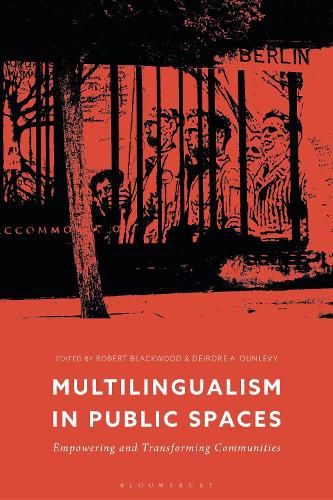Readings Newsletter
Become a Readings Member to make your shopping experience even easier.
Sign in or sign up for free!
You’re not far away from qualifying for FREE standard shipping within Australia
You’ve qualified for FREE standard shipping within Australia
The cart is loading…






Advocates of multilingualism are always seeking new ways to articulate the advantages inherent in living out life in more than one language. This volume brings together researchers from across Europe to explore sociolinguistic perspectives on multilingualism, with specific emphasis on identity, diversity, and social cohesion, as they focus explicitly on the potential of this phenomenon to empower individuals, groups, and communities.
Positioned around the idea of empowerment, this book explores the potential of multilingualism to overcome divisions and build social cohesion. In particular, chapters discuss how multilingualism can help the individual to become critically conscious and to develop an in-depth understanding of the world, while also benefiting society as whole. Understanding ‘public space’ in broad terms, including domains such as education, online, and the linguistic landscape, this volume explores how multilingualism can empower people from a range of perspectives, including memorialisation, onomastics, direct action, linguistic rights, migration, and educational play.
$9.00 standard shipping within Australia
FREE standard shipping within Australia for orders over $100.00
Express & International shipping calculated at checkout
Advocates of multilingualism are always seeking new ways to articulate the advantages inherent in living out life in more than one language. This volume brings together researchers from across Europe to explore sociolinguistic perspectives on multilingualism, with specific emphasis on identity, diversity, and social cohesion, as they focus explicitly on the potential of this phenomenon to empower individuals, groups, and communities.
Positioned around the idea of empowerment, this book explores the potential of multilingualism to overcome divisions and build social cohesion. In particular, chapters discuss how multilingualism can help the individual to become critically conscious and to develop an in-depth understanding of the world, while also benefiting society as whole. Understanding ‘public space’ in broad terms, including domains such as education, online, and the linguistic landscape, this volume explores how multilingualism can empower people from a range of perspectives, including memorialisation, onomastics, direct action, linguistic rights, migration, and educational play.